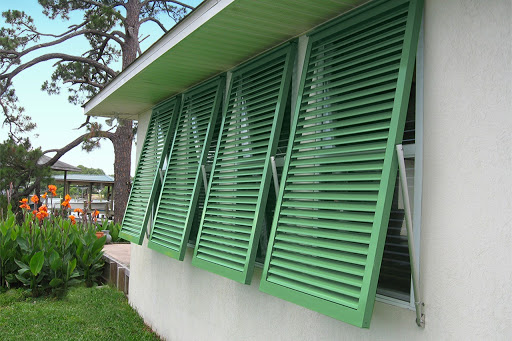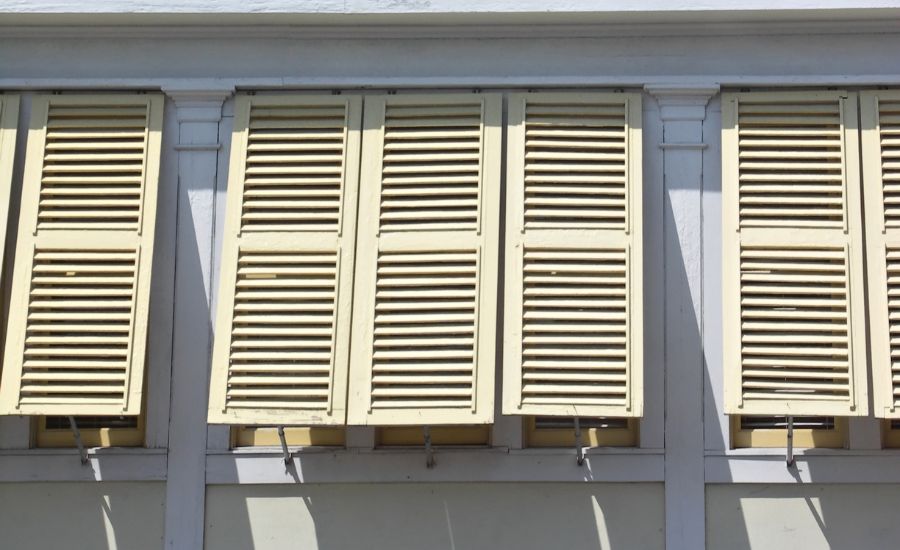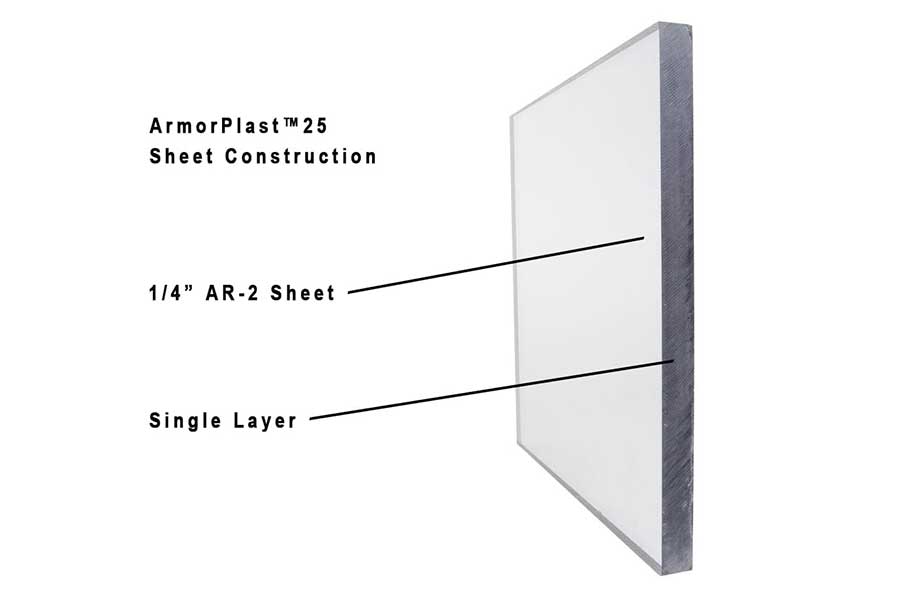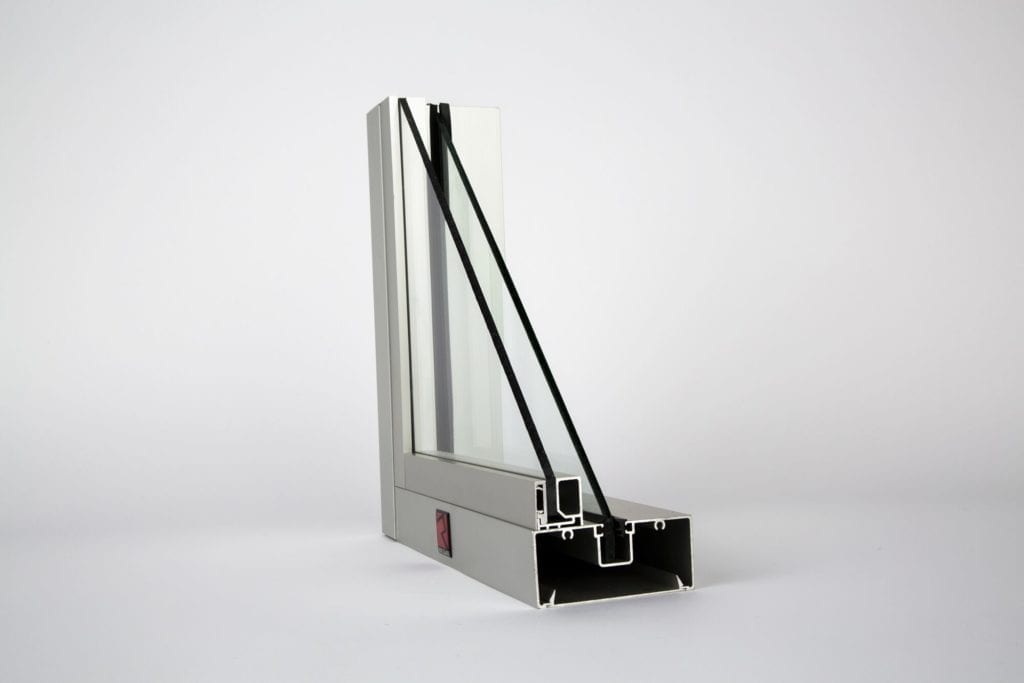Written By: Brad Campbell | September 9, 2021
The 2021 Atlantic hurricane season began on June 1st and will end on November 30. So we thought now would be a great time to share some hurricane shutter maintenance tips.

Keep reading to find out more about how to maintain and repair hurricane shutters to ensure your property stays protected.
We’ll also let you know about a maintenance-free alternative to hurricane shutters!
Hurricane shutters are your property’s first line of defense against hurricane-force winds, heavy rains, and flying storm debris. Shutters protect your building’s window glass from breaking and leaving the inside of the structure exposed to wind damage, flooding, and dangerous debris.

Ensuring your hurricane shutters are in top working order is a key part of hurricane preparedness.
You never know when the next hurricane can make landfall in your area, and by the time a hurricane warning is issued it may be too late to make necessary repairs to your shutters.
Ideally, you should have your hurricane shutters inspected and maintained annually.
There are easy things to check for to ensure your shutters are ready to function at a moment's notice.
Inspect hurricane shutters to ensure that:
Whether you hire a hurricane shutter maintenance expert to inspect your shutters or do it yourself, give the shutters a close visual inspection and make note of any cosmetic damage.
For example, metal shutters can get dented and wooden shutters can have broken or missing slats.

While you’re examining the shutters, clear out any debris from their mechanisms or in their tracks. For instance, leaves, twigs, and other yard waste may get lodged in there.
Finally, open and close all your shutters a few times to make sure they are working properly and smoothly. You don’t want to have any issues putting them in place when a hurricane is on the way!
Perform the following maintenance:
Though there are different types of hurricane shutters, the basic maintenance to perform on them is essentially the same. Accordion shutters, roll-up shutters, and louvered shutters all have moving parts, hardware, and tracks that have to be cleaned and lubricated.
For example, for accordion shutters, lubricate their rollers and wheels so they can slide into place easily. For Bahama shutters, lubricate the bolts and hinges so they swing open and closed smoothly. The same goes for roll-up shutters — lubricate all their moving parts.
After you clean and lubricate your shutters, operate them at least once a month to ensure they stay working as they should. That way, if any new issues arise, you’re not caught by surprise when a storm is on the horizon.
Like anything with moving parts, hurricane shutters can break from time to time. The motors of electrically-operated shutters or the cranks of hand-operated shutters can break, meaning you’ll have to repair or replace them.
Also, the slats on wooden louvered colonial-style shutters can break or come off completely. Metal shutters can suffer from dents and dings that you should have repaired as well.
Whenever your shutters have issues that need repairing, it’s important to call a hurricane shutter repair specialist right away to get them fixed as soon as possible.
Common reasons to repair hurricane shutters:
QMI offers hurricane shutters as a great solution for businesses.
All that hurricane shutter maintenance can be a lot of work, especially if you own a large commercial building with lots of windows. Not only that, but it can be expensive.
If you’re wishing there was a more maintenance-free alternative to hurricane shutters, you’re in luck!
Instead of using traditional hurricane shutters to protect your glass doors and windows, you can retrofit them with something called ArmorPlast™ AP25 polycarbonate glazing shields.
These polycarbonate panels look and feel very much like regular glass, so they won’t change the appearance of your building, block out natural light, or cut off visibility (like shutters do).
Quick facts about ArmorPlast™ AP25:

The polycarbonate is virtually unbreakable and has passed hurricane glass testing to Miami-Dade County hurricane zone building code standards.
What this means is that AP25 has undergone a series of impact tests that simulate multiple impacts by flying storm debris, in this case 2x4s propelled by compressed air.
To qualify for use as hurricane glass in Miami-Dade county, 3 specimens of AP25 had to receive surface impacts from the 2x4s in 2 different areas and not crack, open, or fail in any way.
They also had to pass a series of pressure tests, simulating the changes in pressure inside a building during a hurricane, without failing.
The best part about using AP25 is that the only maintenance it requires is washing, just like your regular windows!

Having functioning hurricane damage mitigation barriers in South Florida and other hurricane zones is not a choice — it’s a necessity.
Performing regular maintenance on hurricane shutters is an essential part of keeping them in top working order. It also helps prolong their lifespan, to save you money on replacements in the long run.
However, there are alternatives to hurricane shutters that can save you time and money when it comes to maintenance and repairs.
Consider retrofitting your property’s glass doors and windows with polycarbonate glazing shields for 24/7, maintenance-free hurricane damage protection.
Contact our professional, knowledgeable team today or have your local glass contractor give us a call to discuss how we can help fortify your commercial building against storms and other threats.

HOW CAN WE HELP YOU?
